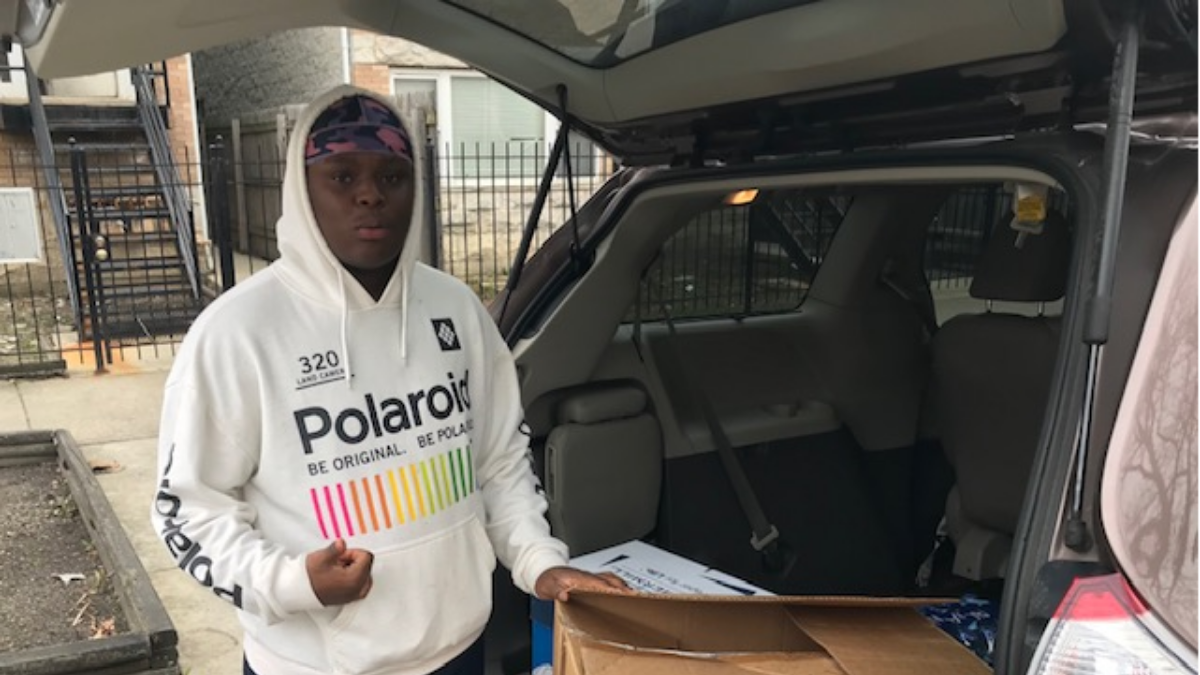Mercy Home President and CEO Fr. Scott Donahue has established a Compassionate Care Task Force (CCTF) to coordinate the therapeutic and tangible support we provide to our young people and families during the COVID-19 pandemic.
Bringing coworkers together from areas across our organization, this responsive work team enables us to evaluate the specific needs of those we serve that have been occasioned or made significantly more acute by this crisis and to meet those needs quickly and efficiently.
Fr. Scott’s primary objectives during this crisis are to fulfill our mission to care for children and families in need, in the ways that they need help right now, and to keep those in our community safe and healthy. The task force is designed to help us meet these objectives and was created during meetings and discussions that took place daily at Mercy Home throughout much of the last month, as the crisis deepened nationally and closures of schools and other systems began to occur in the Chicago area.
In addition to consulting with health officials on preventing the spread of infection at our home, coworkers in our crisis response meetings also voiced a deep concern for the families of all of our young people, including those connected to us through our AfterCare, Friends First Mentoring, and Admissions programs. Last month, for example, as colleges began to dismiss students for the year because of the pandemic, our AfterCare scholars were forced to leave the dorms and had to scramble to secure housing. This unexpected need can be a significant challenge for young people from economically disadvantaged families.
Overall, most of the families we serve throughout our programs live at the economic margins during the best of times, and are now being hit the hardest by job losses and reduced income. This places additional strain on them and on the critical care-giving systems our young people will need to succeed long-term.
From these discussions about how we should provide continued and expanded care for our youth and families who are struggling, we designed the task force around four primary areas of need: food, financial assistance, benefits enrollment, and therapeutic support.
The task force has been tackling the most immediate need first, and that has been to provide food for those families that are now at greatest risk of hunger or food insecurity. Members of the team, as well as our advancement department, have been working with food wholesalers, grocery stores and restaurants, as well as generous donors, to secure and deliver both non-perishables and fresh food. That includes hot meals for those in the most immediate need who, because of their current living situations, may not have the means to cook.
In the weeks to come we will be looking at ways to support other critical needs, such as providing families the tools some need to participate in remote learning instruction or therapy, accessing benefits to help with essentials like food and rent, and even organizing a team of on-call therapeutic staff who can meet the increased need throughout our programs caused the strain of this crisis. And we will continue to reach out to individual donors and partners in the business community for help in providing these families with the things they need most urgently.
We look forward to providing future updates on our progress. Meanwhile, please read the stories on our web site that provide examples of ways we’re helping our young people and families weather this storm. They say more than can be said here about how our generous donors are stepping up during this crisis.



